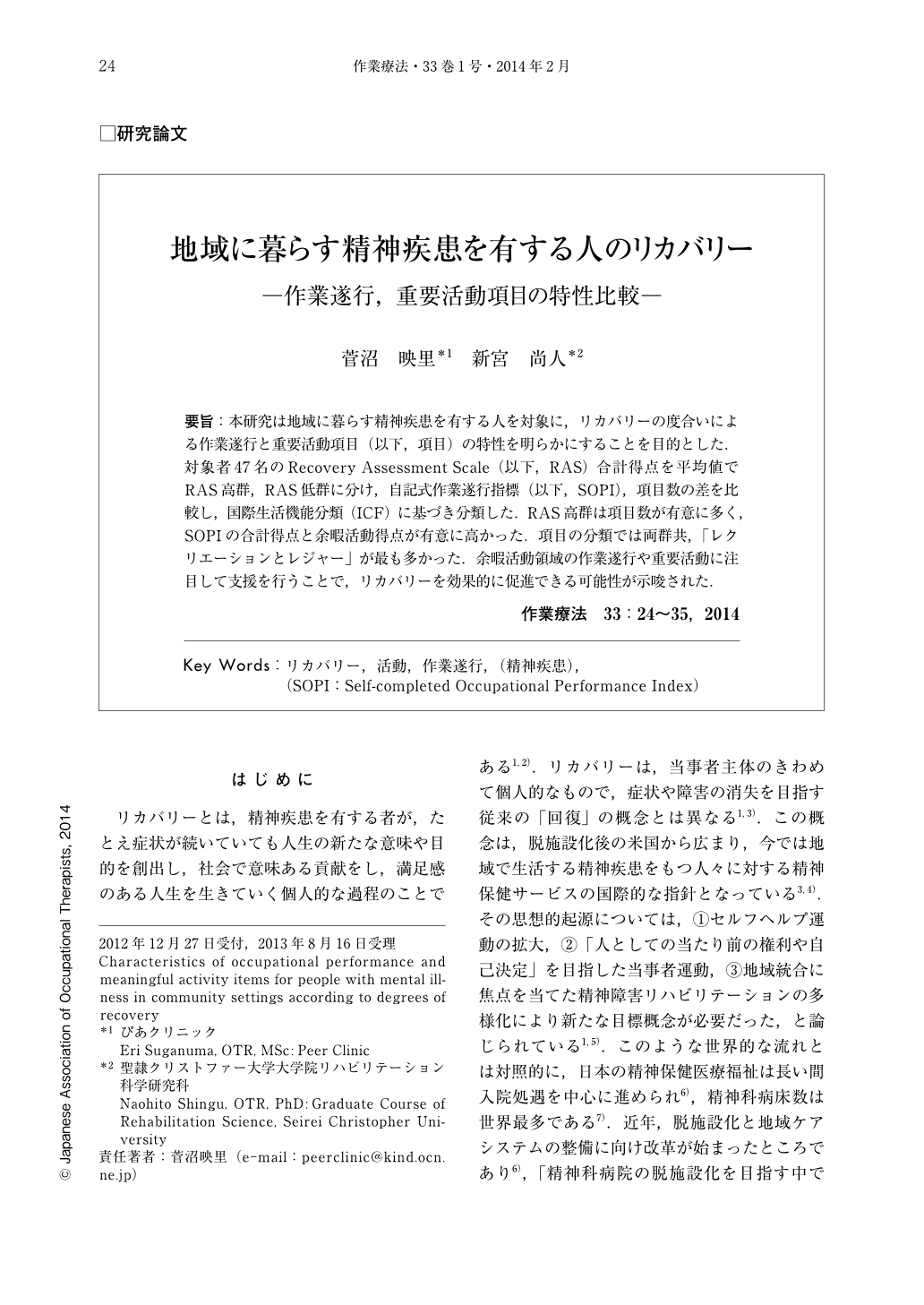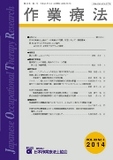Japanese
English
- 販売していません
- Abstract 文献概要
- 1ページ目 Look Inside
- 参考文献 Reference
- サイト内被引用 Cited by
要旨:本研究は地域に暮らす精神疾患を有する人を対象に,リカバリーの度合いによる作業遂行と重要活動項目(以下,項目)の特性を明らかにすることを目的とした.対象者47名のRecovery Assessment Scale(以下,RAS)合計得点を平均値でRAS高群,RAS低群に分け,自記式作業遂行指標(以下,SOPI),項目数の差を比較し,国際生活機能分類(ICF)に基づき分類した.RAS高群は項目数が有意に多く,SOPIの合計得点と余暇活動得点が有意に高かった.項目の分類では両群共,「レクリエーションとレジャー」が最も多かった.余暇活動領域の作業遂行や重要活動に注目して支援を行うことで,リカバリーを効果的に促進できる可能性が示唆された.
This study aims to clarify characteristics of occupational performance and meaningful activity items according to degrees of recovery in people with mental illness in community settings. 47 subjects were divided into the following two groups based on average scores on the Recovery Assessment Scale: a relatively highly recovered group and a recovering group. We compared the occupational performance of the two groups using the Self-completed Occupational Performance Index (SOPI), and the numbers and contents of meaningful activity items from a free-form survey originally developed from SOPI. The meaningful activity items which subjects cited were then classified following the International Classification of Functioning, Disability and Health. Subjects in the relatively highly recovered group mentioned significantly more meaningful activity items and got significantly higher total scores and leisure scores on the SOPI. Among meaningful activity items, recreation and leisure accounted for the largest portion for both groups. This points to the possibility that we can effectively promote recovery by providing support focusing on occupational performance and meaningful activity items in the leisure domain.

Copyright © 2014, Japanese Association of Occupational Therapists. All rights reserved.


